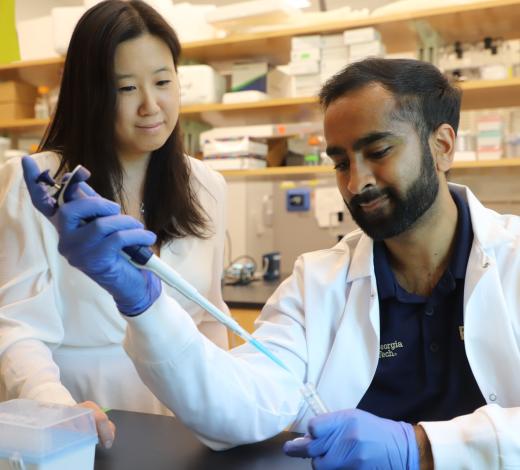Title
Biomedical Robotics
Creating intelligent machines to assist, heal, and enhance human capabilities.
Overview
The Biomedical Robotics research area at the Wallace H. Coulter Department of Biomedical Engineering focuses on designing and developing robotic systems that enhance physical capabilities in healthcare.
Our work merges mechanical design, control systems, sensing technologies, computing, and biomechanics to create smart robotic platforms for surgical assistance, rehabilitation, human augmentation, and beyond.
Research Focus
Our interdisciplinary research covers the following areas:
- Medical Robotics: Feedback-enabled systems for robot-assisted surgery.
- Soft Robotics and Haptic Interfaces: Developing flexible, interactive robotic components.
- Human-Robot Interaction: Enhancing safety and performance in clinical environments.
- Machine Learning and Control: Intelligent robotic adaptation to dynamic conditions.
- Wearable Devices: Smart systems for rehabilitation, training, and injury prevention.
- Biomechanics and Tissue Modeling: Understanding human motion and tissue behavior for improved robotic integration.
- Neurointegrated Prosthetics: Developing prosthetic devices controlled by neural signals.
Application Areas
- Robot-Assisted Surgery: Precision-guided systems for minimally invasive procedures
- Rehabilitation Robotics: Devices to support motor recovery and therapy
- Wearable Robotics: Enhancing movement for patients and workers in demanding environments
- Prosthetic Devices: Neuroadaptive prosthetics that restore natural limb function
- Caregiving Robots: Robotic aids to support elderly or disabled individuals in daily tasks.
Sections
Coulter BME faculty members are at the forefront of biomedical research and technology,
contributing to transformative advancements in healthcare and science.








